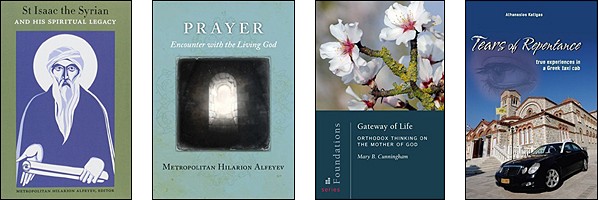See Also: Photo Gallery |Our Parish History | In Memoriam | Holy Relics | Bookstore Notes | Annual Parish Camping Trip
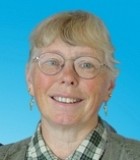
|
by Susan Noel Reynolds |
Holy Trinity Bookstore had its inception in 1992 in the historic Holy Trinity Church in Wilkeson, WA. In a nook in the narthex, there was initially about $250.00 worth of books. From there, due to the purchases of an active reading congregation, it has grown alongside the growth in the church to fill a room in the parish house at Holy Resurrection Church in Tacoma, WA , now our main church. Susan Reynolds has been the bookseller from its beginning.
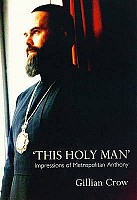
Metropolitan Anthony Bloom is perhaps one of the best known authors of books on prayer and the Orthodox life. Gillian Crow has written a book on his life called This Holy Man: Impressions of Metropolitan Anthony. In discussing her project with him, he suggested that rather than a traditional biography, that she write a 'lyrical biography', which would be more in keeping with the spirit of his own writings. He was a complex man, and when she mentioned to a priest that he seemed to be two different people, the priest responded, 'Oh, at least 5!' His contribution to the spread of Orthodoxy, first in Britain, and, by his writings and broadcasts, to Russia and then the world, attests to his greatness. His vision of Orthodoxy transcended the bounds of Orthodoxy as found in traditionally Orthodox countries. He tended to be shy and reserved, so most of the stories he told about himself were to make a particular point on which he was elaborating, describing his soul as a 'walled garden' which he wished to keep enclosed.
Met. Anthony defined churches as 'places set aside to be God's absolute possession, his dwellings on earth . . .places where love alone was preached, . . .where people who were disfigured by the outside world could very gradually come to their senses and to repentance and begin to change.' In realising this vision in the country he to which was transplanted, in a time of change, he would introduce things which were innovative, but he was careful not to scandalise his congregation. For instance, the choir master who he ordained also to be a priest, Fr. Michael Fortounatto, was holding a class for Readers, including females, who were not then allowed to read in church. When Fr. Michael suggested ordaining them all as Readers, Fr. Anthony said 'Let's wait'. In 1974, he instituted a feast for 'All Saints of These Islands', thus recognising all the pre-schism saints of the British Isles as equal with all other saints of that time. And, along with Fr. Michael and a parishioner who was experienced with sound recording, they founded IKON records, which spread Orthodoxy by its beautiful and timeless music.
His life was long and fruitful, and the book is full of fascinating incidents. His thoughts on approaching death were this: 'In moments of prayer, moments of elation, the spirit wells up, up, up - and breaks down against the frailty of the body. A day will come when life will burst triumphant. And that is what I believe about eternal life.'
Susan Noel Reynolds - Shopkeep
'Reading is a type of prayer', said Elder Arsenius the Cave-Dweller. So here are some new opportunities for reading and prayer, just in to your Bookstore.
Most exciting, perhaps, is a brand new publication from St. Tikhon's Press: St. Tikhon of Moscow: Instructions & Teachings. In it are printed, year by year, sermons, homilies, letters, reports, opinions, and suggestions. I was disappointed to find there is nothing specifically from Wilkeson, but it is mentioned in 'Suggestion 7: To the North American Spiritual Board regarding the distribution of icons from Athos among the Orthodox temples of North America'. I am so excited to have this opportunity to get to know St. Tikhon, who consecrated our beloved Holy Trinity Chapel, through his writings.
Next is a book written by Pope Shenouda III of the Coptic Church, who also wrote the remarkable book Calm, which I wrote about in a previous article. The book is called The Life of Repentance and Purity. In the first section, he discusses the nature of repentance, enlivened throughout by examples found in Holy Scripture: 'Repentance is a fire, taken by the seraphim from the top of the altar. With it, he eliminates the iniquity of the sinner, while saying to him, 'Your iniquity is taken away, and your sin purged.' (Isaiah 6:7) Part two looks at who we are and the reasons we will 'flee from sin'. Third, he gives many ways in which we can repent: 'Sit with yourself . . .do not harden your heart when grace works within you . . .flee from the little foxes which destroy he vines.' The next section concerns St. John the Baptist's counsel: 'Bear fruits worthy of repentance.' He discusses these fruits, one by one. Part five is about purity of heart; purity from sin, of thoughts and dreams, from vanities, and the purification of the heart from knowing sin. Lastly, he discusses how to protect repentance, including caring for the spirit. His style of writing is very immediate, and you feel like he is sitting there talking to you in person.
The third new book is another new publication of St. Tikhon's, Angels and Demons, by Harry Boosalis. In a clear and detailed manner, he addresses first the angels, then the demons, and finally the enigma of evil. For a small volume, it is packed with scriptural and patristic teachings in the Tradition of the Orthodox Church. For instance, 'angels, like mankind, were created with innate capacity to continually progress in spiritual perfection and personal participation in the divine love'. it is wonderful to think of our Guardian Angels growing alongside us in the Love of God. As for the demons, he talks about all the ways in which they try to deceive us, and how Christ has already conquered them for us. Next, he presents many of the things that have been stated about evil throughout history, and presents the Orthodox teaching about its nature. The Epilogue is titled 'The Battle Against Cosmic Evil' and how its real battleground lies in our own struggle against the passion of self-love.
The second festival day allowed by the State will be on the Feast of Pentecost, tax-free, and 20% off. Come and buy something for dad, which is the same day!
Susan Noel Reynolds - Shopkeep
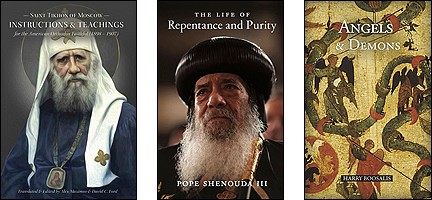
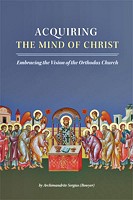
One of the most striking things for me about Orthodox thinking and hymnography is the juxtaposition of opposites. Sometimes they are synthesized, as in St. Romanos' Kontakion on the cross: 'The fiery sword no longer guards the gate of Eden, for in a strange and glorious way the wood of the cross has quenched its flames.' Usually we put wood on a fire to make bigger flames! At other times, the opposites are turned on their heads, as in the concepts of darkness and light, especially as concerns our experience of worldly things. Things which are immediately apparent to our senses can be darkness, while things of the heavenly kingdom which we can perceive only by faith are filled with light.
We have just passed through Great Lent and Holy Week, and have arrived at the bright and Holy Pascha. According to worldly measures, Lent would be considered a time of darkness, a time of denial, a time of repression. And indeed, the Church becomes more subdued, with darker colors, censers-without-bells, and melodies in minor keys. But the words!
Let us joyfully begin the all-hallowed season of abstinence, and let us shine with the bright radiance of the holy commandments of Christ our God, with the brightness of love and the splendour of prayer . . .So, clothed in raiment of light, let us hasten to the Holy Resurrection on the third day . . . (Matins, Monday in the First Week)
This seemingly topsy-turvy concept threads its way throughout the Lenten hymns. It's as if the Church tones down the outer stimulation so that we can be more attentive to our inner lives, to the inner meaning of the words, so that we can better perceive the light within us and within the life of the Church which is the Kingdom. 'For indeed, the kingdom of God is within (among) you.' (Luke 17:21) So, as we turned out the bright lights of this world, we attempted to better see the Light of Christ within us by our fasting, our increased times of prayer, and our intensified self-examination. And rather than a period of darkness preceding the light of Pascha, we entered into Lent as entering into an increase of the True Light, so that we might more clearly see the Light of the Resurrection. For we are called to 'Let this mind be in you which was also in Christ Jesus.' (Phil 2:5) This mind is the mind of the Church, with all its light and beauty.
One of the new books from St. Tikhon's Press addresses this theme: Acquiring the Mind of Christ: Embracing the Vision of the Orthodox Church, by Archimandrite Sergius (Bowyer). This acquisition 'moves us from the image of God to the likeness of God'. In this book Archimandrite Sergius begins to show us how it is done, and why it is so important for our lives as Christians.
May you all have a Paschal season filled with the true and beautiful Light!
Susan Noel Reynolds - Shopkeep
Oh. My. Goodness.
I was looking around online to see if there was anywhere I could get a copy of St. Augustine's commentaries on the Psalms, and I fell into a wonderful shining library! The website is www.newadvent.org, a Roman Catholic website which contains full texts of books and documents from the early Church. Under the heading 'Fathers' are listed over 60 Fathers of the Church, most with multiple writings. Here is a sampling of what can be found: an extensive collection of the Homilies of St. John Chrysostom, the 5 books of the Ecclesiastical History of Theodoret, The Shepherd of Hermas, and the Orations of Gregory the Theologian. Under the heading 'Encyclopedia', there are articles on a multitude of subjects, and definitions are given of certain words, with references to where they are used in Scripture. Under 'Bible', the full text is given in English with the original language opposite, Hebrew for the Old Testament, and Greek for the New. I am so blown away! The whole collection is available for download for $19.99, but it is there online for the reading.
Here are a couple of things I found:
From St. Ephraim of Syria's Homily on the Sinful Woman
The sinful woman rejoiced when she heard that He sat and was feasting at Simon's house; her thoughts gathered together like the sea, and like the billows her love surged. She beheld the Sea of Grace, how it had forced itself into one place, and she resolved to go and drown all her wickedness in its billows.
From St. Ambrose, against the Novation heresy:
If the highest end of virtue is that which aims at the advancement of most, gentleness is the most lovely of all, which does not hurt even those whom it condemns, and usually renders those whom it condemns worthy of absolution, . . . imitating the lovingkindness of heaven, and aiming at the redemption of all, seeks this end with a gentleness which the ears of men can endure, in the presence of which hearts do not sink, nor their spirits quench.
May all of you have a most blessed Lenten season!
Susan Noel Reynolds - Shopkeep
When I first became Orthodox and learned that there were only three people that were considered 'Theologians', I wondered that there were not many books on St. Symeon the Theologian readily available. It was the same thing with St. Isaac the Syrian. He was quoted in a book I read many years before becoming Orthodox concerning 'What is a merciful heart?', which was instrumental in my conversion. Yet I could only find one very slim and one very expensive book available. But now Metropolitan Hilarion Alfeyev has edited a new book, St. Isaac the Syrian and His Spiritual Legacy. It is a substantial book containing 23 essays by various experts on St. Isaac which were delivered at the International Patristics Conference which took place in Moscow in 2013. Metropolitan Hilarion wrote an introductory essay, 'In Search of a Spiritual Pearl', and the essays that follow cover a wide range of topics such as psalmody and prayer, angelology, and different aspects of the spiritual life.
The next new book from Metropolitan Hilarion is Prayer: Encounter with the Living God. It is a very accessible, small book that is described as 'deceptively simple'. There are 32 short chapters which concern a wide variety of aspects of prayer. He teaches us that 'prayer should be the foundation of our life, that upon which our whole life should be configured.'
Another new book is Gateway of life: Orthodox Thinking on the Mother of God, by Mary B. Cunningham of the University of Nottingham in Britain. This book looks at the Theotokos through many lenses: Scriptures, apocryphal and liturgical traditions, her place in Christological doctrines, her intercessory role, and modern Orthodox interpretations. So, it is a comprehensive book and at the end of each chapter she gives a list of sources for further study on its subject.
The last new book is written by a Greek taxi driver. In this delightfully written book, Tears of Repentance - True Experiences in a Greek Taxi Cab, he recounts stories of his spiritual conversations with passengers in his taxicab and other incidents in his life, including advice and observations by his spiritual father. Many of his stories are about his family and friends as well. The book is full of real-life experiences that illustrate how this one person seeks God in every aspect in his life.
Susan Noel Reynolds - Shopkeep
